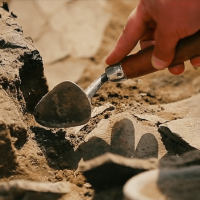
Student podcast explores changing face of archaeology
Cornell graduate students are collaborating with students across the country on the scholarly podcast.
 Department Homepage
The College of Arts & Sciences
Department Homepage
The College of Arts & Sciences

Cornell graduate students are collaborating with students across the country on the scholarly podcast.